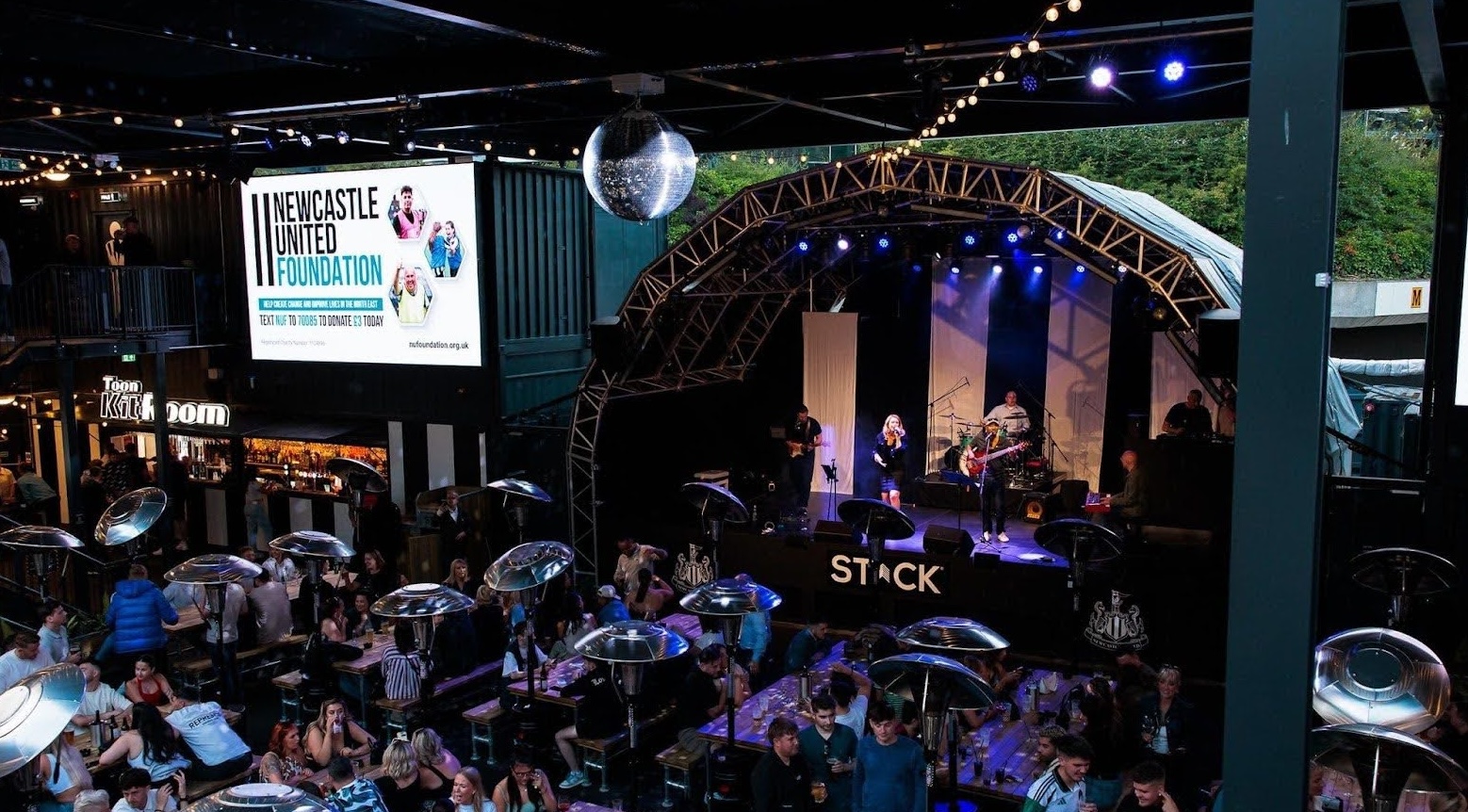
Spring Budget 2024: Why a reduction in VAT is essential for the hospitality sector
The Spring budget is looming, and Chancellor Jeremy Hunt will outline his economic plan for the country on March 6th and a reduction in VAT has to be included to provide vital support to the hospitality sector.
The Spring Budget will be the last before the upcoming general election, and it will be one of the most important statements Hunt will make to the House of Commons in a bid to sure up support for the party. It is bound to introduce lucrative economic packages to act as a final roll of the dice to sway the electorate to vote Conservative.
The UK is now in an official recession after shrinking in two consecutive quarters, meaning Rishi Sunak has failed on one of his five promises - to grow the economy. It isn’t a good look for the Prime Minister in an election year.
But there is one aspect that the hospitality sector is determined to see included in the budget, which is a reduction in the 20% VAT rate.
To ensure the Government implements that reduction, industry bodies have come together to collectively lobby MPs to reduce VAT to 12.5%. For the CEO of the Night-Time Economy, Michael Kill, that VAT reduction must include alcohol. During the pandemic, the Government reduced the rate to 5% but excluded wet-led pubs, clubs and bars, which created a huge void in business support. This proposed VAT reduction has to encompass all aspects of the sector, or it will not be viable.
That clear message creates the #LeaveNoOneBehind Campaign by the NTIA to garner the financial support hospitality desperately needs, which will reduce closures and boost financial viability.
This campaign is something that Richard Kilpatrick, Lib Dem Councillor for West Didsbury and the Campaign Manager at the European Movement, has backed. “It is absolutely something I support,” Kilpatrick said.
“I support it because the top of the political discourse in this country is centred around personal finance, and while putting money in people's pockets is important, I’m not convinced they will spend it in hospitality businesses. What we need is an injection of stimulus into the economy. So I hope that the government listens and facilitates that.
“Getting businesses through the next two weeks is a pretty fundamental thing for me. I hope that in this budget, the government realise that they can't solve some of the crises in the hospitality industry and the night-time economy by just looking at personal finance tax cuts, but by having to look at the industry as a whole.”
The hospitality sector is struggling, and businesses are closing at an alarming rate, with more than 6,000 venues closing in 2023. The data from CGA by NIQ and AlixPartners highlighted that there have been nearly 23,000 closures since the pandemic, it is clear as day that support is needed for the industry.
A recent survey by UKHospitality, the British Beer and Pub Association, British Institute of Innkeeping and Hospitality Ulster amplified support is needed for the industry. It showed that a quarter of hospitality businesses have no cash reserves, and a further 29% have less than three months’ worth.
The solution posed by 94% of respondents was to lower the rate of VAT.
In Kilpatrick’s Ward of West Didsbury, one of the hotspots for cultural activity is Burton Road, which is home to a plethora of independent businesses. But due to soaring business rates, four venues have shut their doors for good in the past month.
Kilpatrick said: “For the first time, I realised why I’m drawn to an area. Personally, Didsbury is my home, and others have started to challenge their identity of why they call a place a home. And if you ask the locals the last time they went there, it might have been once in the last year. I get that everyone’s pockets are squeezed, but make sure you support those independent venues, businesses and restaurants because if you don't use them, then we will lose them.”
VAT receipts are the highest it has ever been, with the total number sitting at £146.76 billion, which is a £5 billion increase from last year. Whilst the number has soared, the VAT population has dropped for the first time in 10 years, this year by over 120,000. The reason for higher VAT receipts with fewer businesses is that there are higher levels of inflation with changes in consumer expenditure. But whatever the reasons are, it is clear that businesses need more leeway.
The support that the Councillor posed is to be specific in the business rates discount and to offer a model similar to one that was implemented during COVID. VAT was reduced to 5% during the pandemic, however, this didn’t include alcohol, something that will need to be amended. But before this, “the first thing that has to happen is recognition that there is a crisis. Because a lot of these closures are seen to be in isolation. It's very easy from a national perspective to think these are just 125 different individual stories, whereas the fact is, the situation is in crisis.
“The second thing is we need to understand how valuable these places are to our heritage. Grassroots venues are iconic in industrial northern cities. They are our heritage. The bingo halls and the dance halls of yesteryear, are now grade A listed buildings and have been protected. Those venues might have sticky floors, but they are the venues of our generation. We need to advocate for them now before we lose them.
“During COVID, we had that support with the VAT cut, but there is an assumption that COVID has gone away. We are still in a hangover from it. I would go as far as saying we’ve not even got to the hangover stage yet like we are well and truly pissed. We need to identify the need to go back to that VAT cut we saw in COVID, which is something we advocate for. We need to look at specific industries that are still really hurting from COVID, and the night-time economy and the hospitality sector are those industries.”
The UK budget can implement a VAT reduction after the Chancellor received a huge boost to the budget as it is running its largest monthly surplus budget since modern records began more than 30 years ago. Figures from the Office for National Statistics show the state’s tax receipts in January were £16.7bn higher than spending.
Along with the fact that the country isn’t in the EU anymore, the UK is no longer bound by EU VAT Rates, which are set at a minimum of 15% across all members. This means that the Government has more leeway when setting the VAT rate and can go below the 15% it was previously bound by. Kilpatrick is the Campaign Manager for the European Movement, which works to build close connections with the EU, as well as acknowledging and highlighting the damaging impacts of Brexit, so is well positioned to comment on the added flexibility which came from Brexit.
Whilst the flexibility of the VAT reduction is a positive for Kilpatrick, “the general cost of living from the impact of Brexit is a problem. Even the most conservative estimates would say Brexit has been responsible for a 5% increase in costs across the board. So It’s swings and roundabouts.
“Even the issues with the workforce mean it is impossible to hire at the minute, and when I speak to business owners, they say that for the first time, they've had to do a full week, which is because they can't find staff. That whole area of the economy has been decimated by the lack of freedom of movement from people coming over from Europe and likewise, the other way around. If they can't perform abroad, it’s impacting those groups of people, which generally means that they're leaving the industry, and grassroots music will be a much more difficult thing to get into and make a living in.”
The hospitality sector has never needed a reduction in VAT as it has done right now. The closure statistics and business rate increase are damaging to the industry, which won’t feel a change anytime soon unless a reduction is announced on the 6th of March. The #LeaveNoOneBehind campaign will continually lobby local MPs until the budget to push for that support.
Related news


.jpg)
.jpg)

.svg)

